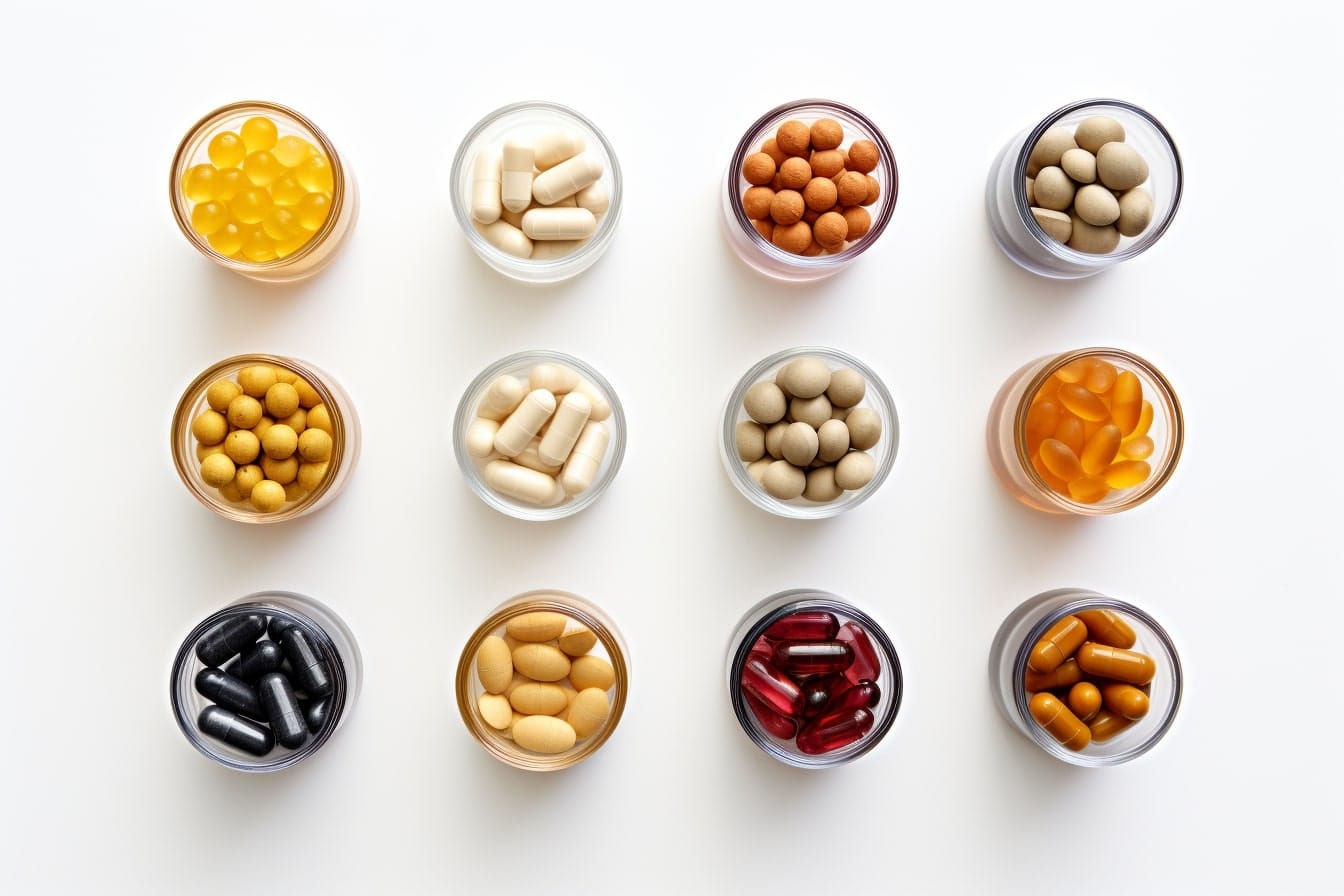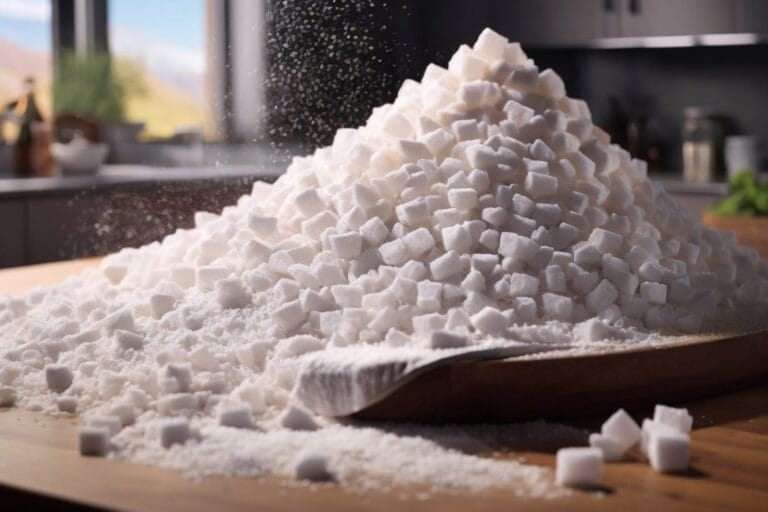Supporting Healthy Aging with Supplements: A Step-by-Step Guide
Aging brings natural physiological changes that can negatively impact our health, including decreased bone density, reduced muscle and skin quality, impaired digestion and absorption, diminished eyesight and cognition, and increased inflammation underlying most age-related diseases.
While diet and lifestyle remain foundational to healthy aging, targeted supplementation provides critical support against these unavoidable age-related declines.
Science has now identified certain vitamins, minerals, antioxidants and other compounds that play vital roles in optimizing biological function and safeguarding health as we transition through our golden years.
Strategically supplementing these nutrients can help strengthen bones, enhance cognition, improve vision, increase muscle strength and preservation, reduce joint discomfort, support heart health, sharpen mental focus, boost immunity, promote digestive regularity, maintain healthy glucose metabolism, increase longevity pathways like autophagy, and reduce oxidative stress and inflammation.
For example, the mineral chromium is essential for insulin sensitivity and blood sugar control, which tends to decline with age. The antioxidants vitamin C and glutathione defend against free radicals that damage healthy cells. Key B vitamins like folate and B12 regulate critical processes like DNA synthesis, neurological function and red blood cell formation. Omega-3 fatty acids eicosapentaenoic acid (EPA) and docosahexaenoic acid (DHA) support cellular membranes and reduce inflammatory conditions prevalent in older populations.
While a healthy diet should provide sufficient amounts of core nutrients, supplementation fills important gaps that emerge as the body’s production, absorption and utilization change with advancing years. What once was obtainable through food alone becomes harder for the aging body to extract and use efficiently.
Targeted supplementation remedies this, providing compounds concentrated into bioavailable forms that efficiently nourish the body’s intricate biochemistry that otherwise shows functional losses over time. The right combination of supplements taken consistently can profoundly enhance one’s fitness, vigor and quality of life through their senior years and beyond.
Here we will explore the top 10 supplements shown to deliver important benefits for those of us over 50, from probiotics to magnesium to curcumin. Read on to understand how strategic supplementation can optimize your longevity and wellbeing.
Omega-3 Fatty Acids
Omega-3s provide vital anti-inflammatory effects that help alleviate joint pain and arthritis. They also support cardiovascular, brain, eye, and cognitive health. The two most critical omega-3s are:
- EPA (eicosapentaenoic acid) – reduces inflammation, lowers triglycerides and blood pressure
- DHA (docosahexaenoic acid) – supports brain, nerve and eye health
For optimal results, aim for 1000-2000mg daily of combined EPA/DHA. High quality fish oil supplements from brands like Nordic Naturals provide omega-3s in bioavailable triglyceride form. Take with a meal to increase absorption.
Vitamin D3
Vitamin D regulates calcium absorption and promotes bone health. Low levels are extremely common in older adults, linked to frequent falls and fractures. Vitamin D also supports immunity, mood, and memory.
The recommended daily intake for adults over 70 is 800-1000IU. However, optimal blood levels are 50-80 ng/mL. Supplementation with 2000-5000IU daily helps maintain ideal levels for bone, muscle and brain health. Choose reputable brands like Nature Made Vitamin D3.
Probiotics
Probiotics replenish healthy gut bacteria that decline with aging. Look for evidence-based strains like Lactobacillus and Bifidobacterium species clinically shown to improve gut barrier and immune function.
Specific strains help increase nutrient absorption, prevent antibiotic-related diarrhea, alleviate GI issues like bloating and constipation, and enhance calcium uptake for stronger bones. Aim for at least 10 billion CFUs and 5+ probiotic strains.
Magnesium
Magnesium regulates over 300 enzyme reactions in the body. It’s vital for muscle and nerve conduction, bone mineralization, blood glucose control, and heart rhythm.
Gastrointestinal conditions, diabetes and medications deplete magnesium. Deficiency is widespread in older adults, linked to muscle cramps, osteoporosis, heart disease, and metabolic issues.
Magnesium glycinate and citrate have excellent bioavailability. Supplementing 100-400mg elemental magnesium daily helps counteract loss from aging and medicines. It also boosts exercise performance.
Collagen Peptides
Collagen production plummets with age, leading to sagging skin, creaky joints, and slower injury recovery. Collagen supplements counteract this decline. Look for hydrolyzed collagen peptides from grass-fed, pasture-raised, or wild marine sources.
Clinical studies demonstrate collagen peptides increase skin hydration, elasticity, and dermal collagen density. They also reduce lines and wrinkles. For joints, collagen helps rebuild cushioning cartilage to improve flexibility and reduce discomfort.
Coenzyme Q10
CoQ10 is a powerful antioxidant that supports cellular energy production. Levels drop significantly after age 40, accelerating aging. CoQ10 supplementation rejuvenates levels.
Studies show CoQ10 enhances heart health and cardiovascular function, improves symptoms in heart failure patients, and slows Parkinson’s progression. Statin users are at high risk of deficiency.
Seek emulsified or reduced CoQ10, which is up to 10x more absorbable. Aim for 100-200mg daily taken with food. CoQ10 has an excellent safety profile.
Vitamin B12
Vitamin B12 is vital for nerve transmission, cognition, memory, and DNA synthesis. Low B12 is widespread in seniors due to reduced stomach acid. Deficiency symptoms include weakness, fatigue, depression, memory loss, and neuropathic pain.
Supplementing corrects low B12 levels. Sublingual tablets or liquid B12 boost absorption, as dose oral supplements. Look for methylcobalamin, the active form. 500-1000mcg daily prevents deficiency.
Protein Powder
Consuming adequate, high-quality protein preserves lean muscle mass and strength that otherwise decline with aging. This protects against sarcopenia and frailty.
Protein powders provide an easy way to increase daily protein intake. Whey and casein protein are complete proteins that also support satiety. Aim for 25-30g protein per serving.
Calcium
Estrogen loss in older women accelerates bone loss, increasing osteoporosis risk. Calcium supplements help strengthen bones when dietary calcium is inadequate. Look for forms like calcium citrate for optimal absorption.
Clinical research shows total daily calcium intakes of 1000-1200mg reduce fracture risk. Take elemental calcium in divided doses with food to increase bioavailability. Add vitamin D and magnesium too.
Curcumin
Curcumin is the active compound in turmeric. It supplies powerful antioxidant, anti-inflammatory, and antimicrobial effects that combat the diseases of aging.
Human studies demonstrate curcumin improves cognitive function, enhances mobility in those with joint disorders, and protects vascular health. 500-1000mg curcumin daily serves most needs. Look for enhanced bioavailability forms.
In Conclusion
Targeted, science-backed supplementation safeguards our health as we age. But nutrition, exercise, and lifestyle remain the foundation. Work with a knowledgeable practitioner to determine the best regimen for your needs. Stay proactive; combining prudent supplementation with healthy living provides the most robust strategy.
References:
[1] https://www.ncbi.nlm.nih.gov/pmc/articles/PMC3590973/
[2] https://www.ncbi.nlm.nih.gov/pmc/articles/PMC6251269/
[3] https://www.ncbi.nlm.nih.gov/pmc/articles/PMC1262767/
[4] https://www.ncbi.nlm.nih.gov/pmc/articles/PMC6834330/
[5] https://www.ncbi.nlm.nih.gov/pmc/articles/PMC6075634/
[6] https://www.ncbi.nlm.nih.gov/pmc/articles/PMC3843379/
[7] https://ods.od.nih.gov/factsheets/VitaminD-HealthProfessional/
[8] https://academic.oup.com/ageing/article/49/1/9/5564401
[9] https://journals.physiology.org/doi/full/10.1152/ajpgi.00404.2016
[10] https://www.sciencedirect.com/science/article/pii/S2352364619300772
[11] https://www.ncbi.nlm.nih.gov/pmc/articles/PMC3738145/
[12] https://www.ncbi.nlm.nih.gov/pmc/articles/PMC6416399/
[13] https://journals.humankinetics.com/view/journals/ijsnem/29/2/article-p152.xml
[14] https://www.ncbi.nlm.nih.gov/pmc/articles/PMC5742911/
[15] https://onlinelibrary.wiley.com/doi/10.1111/jocd.13972
[16] https://www.mdpi.com/2079-9284/7/2/21
[17] https://www.ncbi.nlm.nih.gov/pmc/articles/PMC7019700/
[18] https://academic.oup.com/biomedgerontology/article/74/4/547/5057270
[19] https://www.researchgate.net/publication/256029804_Coenzyme_Q10_for_Parkinson’s_disease
[20] https://www.ncbi.nlm.nih.gov/pmc/articles/PMC3934577/
[21] https://www.ncbi.nlm.nih.gov/pmc/articles/PMC6950346/
[22] https://www.ncbi.nlm.nih.gov/pmc/articles/PMC4079263/
[23] https://academic.oup.com/nutritionreviews/article/75/9/671/4101228?login=false [24] https://www.ncbi.nlm.nih.gov/pmc/articles/PMC6127293/
[25] https://www.cochranelibrary.com/cdsr/doi/10.1002/14651858.CD001153.pub2/full [26] https://www.ncbi.nlm.nih.gov/pmc/articles/PMC5664031/
[27] https://www.ncbi.nlm.nih.gov/pmc/articles/PMC5003001/
[28] https://www.ncbi.nlm.nih.gov/pmc/articles/PMC5456424/
[29] https://www.ncbi.nlm.nih.gov/pmc/articles/PMC3969660/







